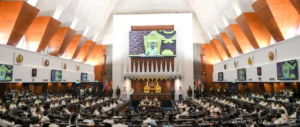On 23 October 2020, it was reported that the Cabinet sought to impose emergency measures in the country, ostensibly to ensure that the upcoming budget debate in Parliament does not result in snap elections and jeopardise efforts to stop the latest wave of coronavirus infections.
What can the Yang di-Pertuan Agong (YDPA) do if the Prime Minister advises His Majesty to issue a Proclamation of Emergency?
To be honest, not much.
The YDPA must accept and act in accordance with the Prime Minister’s advice under Article 40 of our Federal Constitution. That is the role of a constitutional monarch.
However, there are a few things to note.
Firstly, the YDPA is entitled to any information concerning the grave emergency, if it exists, and any other information concerning the government which is available to the Cabinet.
This means that the Prime Minister must provide full and frank disclosure to His Majesty on the reasons and motivations behind this supposed emergency. The Prime Minister cannot, for example, say that the economic life of the country is threatened when in reality, he is merely not confident that the budget would be passed. Doing so would be a dereliction of his constitutional duties.
If the budget is not passed in Parliament, this simply means that a majority of the Members of Parliament (MPs) have no confidence in the government or disagrees with the budget. Following from that, either a new Prime Minister is needed, one who is able to get the budget passed, or the MPs have to arrive at a compromise to ensure that the budget is passed.
This is by no means a threat to the economic life of the Federation of Malaysia. Examples of threats to economic life could include situations whereby the banking system is falling apart, or there is widespread economic sabotage by external forces.
Secondly, by convention, the YDPA is entitled to consult anyone before acting on the advice of the Prime Minister. The YDPA can requisition the Conference of Rulers for the purpose of such consultation.
Thirdly, the YDPA has the right – indeed the duty – to counsel, encourage and warn His Majesty’s Government. His Majesty is at liberty to express his opinions on the Proclamation of Emergency and perhaps warn the Prime Minister against doing it. Such communications would be entirely confidential between the YDPA and the Prime Minister.
In short, if the YDPA feels that the advice given to him is wrong, he could counsel or warn against such advice. If the Prime Minister yields, then the YDPA is justified in his actions. However, If the Prime Minister persists, the YDPA must give way.
What can we as ordinary citizens do if the Prime Minister persists with a Proclamation of Emergency?
We must pressure our MPs to denounce the Prime Minister’s decision.
If a majority of MPs disagree with the Proclamation of Emergency, they should inform the YDPA that the Prime Minister ceases to command the confidence of the majority of the members of the Dewan Rakyat. Hence, he is in no position to advise the YDPA.
Once the Prime Minister has lost the confidence of the majority, he must resign. He could then request for a dissolution of Parliament, which the YDPA may decline under Article 40(2)(b), or make way for another Prime Minister to be appointed by the YDPA.
Preferably a Prime Minister who will not advise the YDPA to issue a Proclamation of Emergency.




